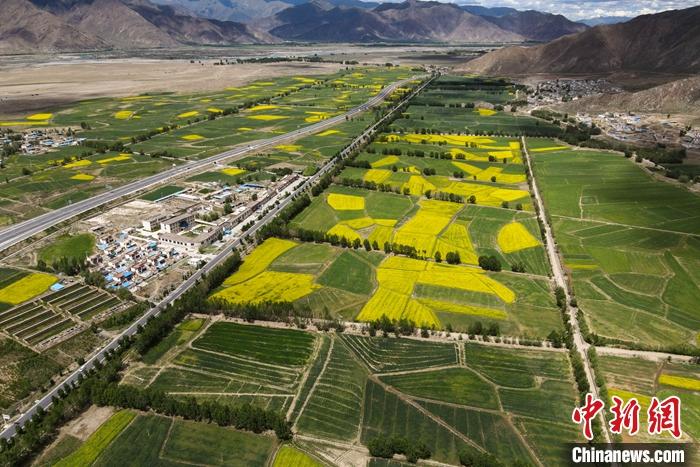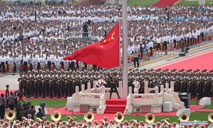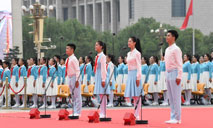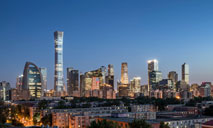SW China's Lhasa sees lower use of pesticides, chemical fertilizers
Last year saw the use of pesticides and chemical fertilizers decreasing by 5 percent and 10 percent respectively in Lhasa, southwest China's Tibet autonomous region, according to the latest statistics from the municipal government.

Photo shows potato and rape fields planted by farmers in Dazi district, Lhasa. (Photo/chinanews.com)
In order to protect the ecological environment in the plateau known for its natural beauty, Lhasa eliminated 49 coal-fired boilers and more than 9,700 old motor vehicles in 2020. Meanwhile, 14 photovoltaic power stations were built during the period, and urban buses were all replaced by new energy vehicles.
Last year, Lhasa was blessed with excellent air quality all year around. The city redoubled its efforts to control pollution related to dust, motor vehicles and volatile organic compounds, explained Deji Yangzong, deputy director of the Lhasa municipal ecology and environment bureau.
The city also made sure that its 725,500 mu (48,366 hectares) of arable land and 616,700 mu of permanent basic farmland maintained their high quality.
According to Tang Liqiong, deputy director of the Lhasa municipal ecology and environment bureau, last year, Lhasa completed a detailed survey on the soil pollution of agricultural land and detected no agricultural land pollution within the city.
Lhasa is currently home to a grassland area of 31 million mu and a forest area of 646,900 hectares, with a green coverage ratio of 38.76 percent in urbanized areas.
Photos
Related Stories
Copyright © 2021 People's Daily Online. All Rights Reserved.










